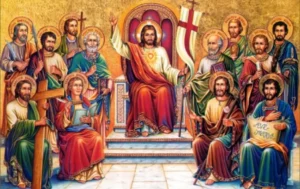Monotheism, the belief in one God, is the cornerstone of Islamic theology. It defines the essence and framework of Islamic faith and practice, distinguishing it profoundly from polytheistic religions. This article delves into the vital role monotheism plays in Islam, its theological foundations, and its implications for Muslims worldwide.
The Concept of Tawhid
The core of Islamic monotheism is encapsulated in the concept of Tawhid, which asserts that there is no deity worthy of worship except Allah, and Muhammad is the messenger of Allah. Tawhid is more than just a belief in one God; it is an affirmation of God’s singularity in His essence, attributes, and actions. This principle influences every aspect of a Muslim’s life, guiding their spirituality, ethics, and social behaviors.
Theological Foundations and Scriptures
The Quran, Islam’s holy book, is replete with references to Tawhid. Verses such as “Say, He is Allah, the One” (Surah Al-Ikhlas, 112:1) emphasize God’s uniqueness and indivisibility. The Hadiths—sayings and actions of the Prophet Muhammad—also reinforce this belief, providing practical examples of how monotheism should be reflected in a Muslim’s daily conduct.
Implications of Monotheism in Islamic Life
Monotheism in Islam is not merely a theological assertion; it shapes the moral and legal fabric of Muslim societies. It fosters a sense of brotherhood and equality among Muslims, as all believers are unified under one God. This unity transcends ethnic, social, and national divisions, promoting a global Islamic identity.
- Worship and Rituals: Monotheism dictates the rituals and practices of Islam, ensuring they are performed solely for Allah’s pleasure. Prayers, fasting, charity, and pilgrimage are all performed with the intention of honoring the one true God, avoiding any form of idolatry or polytheism.
- Legal and Ethical Conduct: Islamic law, or Sharia, is deeply rooted in monotheistic principles. Laws governing personal behavior, family relations, and societal obligations are all designed to uphold Tawhid. The prohibition of practices like usury and fraud can also be traced back to the desire to maintain a just society under the governance of one God.
- Social Justice and Responsibility: Monotheism instills a strong sense of responsibility among Muslims towards their fellow human beings. It drives the commitment to justice, equity, and compassion in interactions with others, reflecting the unity and harmony that is central to Tawhid.
Challenges and Contemporary Issues
While the principle of monotheism is clear, its application in the modern world presents challenges. Issues such as religious pluralism, modernity, and interaction with other faith systems require Muslims to continually interpret Islamic teachings in light of contemporary realities while staying true to the monotheistic essence of their faith.
Conclusion
Monotheism is the bedrock upon which Islamic theology is built. It shapes every aspect of a Muslim’s faith and practice, from individual worship to global Islamic identity. Understanding and appreciating this central tenet is crucial for both Muslims and non-Muslims to foster better intercultural and interfaith relations. By adhering to this foundational belief, Muslims navigate the complexities of modern life, holding fast to the timeless truth of the oneness of God.





